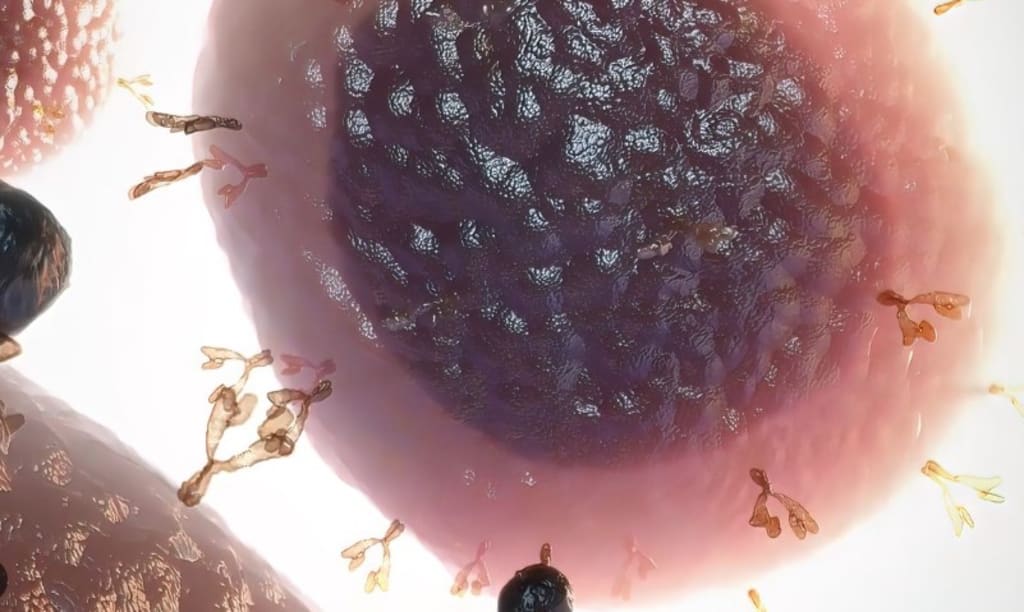Unveiling the Secrets of Age Reversal
Can You Turn Back the Clock?

For ages, people have been captivated by the quest to defy aging. The search for the elusive "fountain of youth" and new methods to reverse the aging process has been a constant endeavor. But is it truly possible to turn back time? Let's delve into the research and find out.
Is Reversing Aging Feasible?
Complete reversal of aging is beyond our reach, as it is an inherent part of life's natural course. However, by embracing a healthy lifestyle, it may be possible to slow down the aging process and minimize the risk of age-related diseases. Adopting habits such as maintaining a nutritious diet, applying sunscreen daily, and engaging in regular exercise can significantly contribute to this endeavor.
These practices not only decelerate the aging process but also help maintain a more youthful appearance. Internally, they contribute to a lower biological age, making your body feel and appear younger than your chronological age suggests.
Let's delve deeper into the concept of aging and explore potential steps to reverse its effects.
Understanding Aging:
Aging can stem from various physical and psychological factors, including prolonged worries about economic matters. However, the underlying process remains consistent. Our bodies consist of countless cells that undergo repeated multiplication. Each cell has a limited capacity to divide before it reaches its end. Consequently, as cellular damage accumulates throughout the body, signs of aging become apparent.
To comprehend aging, we must examine the cellular level. Our chromosomes carry DNA, the blueprint for cells, and possess protective caps known as telomeres. Telomeres shield our chromosomes, but they gradually shorten as cells continue to multiply. Once telomeres become critically short, they can no longer safeguard DNA, leading to the cell's demise. This process can be likened to the natural "wear and tear" experienced by cells after numerous cycles of division and replication.
While aging affects all organs in the body, the skin serves as a visible indicator of its progression. During youth, the body efficiently repairs damaged skin cells. However, as we age, the restorative mechanisms become less effective. This results in thinner skin, collagen loss, and the emergence of fine lines and wrinkles.
Beyond the mere appearance of wrinkles, combating aging requires addressing the entirety of its cosmetic manifestations. These additional markers include hyperpigmentation, dark spots, sunspots, and uneven texture and tone. Tackling these aging concerns can contribute to a more youthful appearance.
Unveiling Nine Ways to Combat Aging:
Embrace a Healthy Diet:
The importance of a healthy diet in promoting longevity is well-established. Studies consistently indicate that diets rich in fruits, vegetables, and whole grains, such as the Mediterranean diet, can reduce the risk of heart disease, diabetes, brain disorders, and other medical conditions. Furthermore, evidence suggests that adhering to a Mediterranean diet may prevent frailty and age-related diseases, ultimately leading to a longer lifespan.
Calorie Restriction:
Alongside maintaining a healthy diet, restricting calorie intake can impact the aging process. One method to achieve this is intermittent fasting, which involves alternating between periods of eating and fasting. Research suggests that intermittent fasting can improve overall health, combat obesity, diabetes, heart disease, and neurologic conditions like Alzheimer's and Parkinson's diseases. Although animal trials indicate extended lifespan with intermittent fasting, its effects on humans remain to be confirmed .
Smoking Cessation:
Cigarette smoke contains numerous harmful chemicals that take a toll on the body, particularly on the skin. These chemicals damage skin cells and hasten the signs of aging, including the development of fine lines, wrinkles, skin discoloration, and uneven tone. Quitting smoking can help reverse some of these changes .
Regular Exercise:
Exercise not only improves overall health but also delays the cognitive decline commonly associated with aging. Studies suggest that older adults engaged in a combination of aerobic and resistance training experience enhanced cognitive function. Additionally, exercise may serve as a protective measure against dementia and Alzheimer's disease.
Daily Sunscreen Application:
Exposure to ultraviolet A (UVA) and ultraviolet B (UVB) rays from the sun can cause significant damage to the skin. Sun damage accounts for a substantial portion of aging changes, including fine lines, wrinkles, dark spots, spider veins, and an uneven complexion. Applying sunscreen with a sun protection factor (SPF) of 30 or higher daily can prevent sun damage and premature aging.
Harness the Power of Retinoids:
Retinoids, derived from vitamin A, possess remarkable skin rejuvenating properties. They accelerate skin cell turnover and boost collagen production, effectively reducing the appearance of fine lines, wrinkles, and uneven skin tone. Retinoids, such as tretinoin and retinol, contribute to a more youthful and radiant complexion.
Optimize Vitamin C Intake:
As a potent antioxidant, vitamin C plays a crucial role in combating free radicals that contribute to skin aging. Studies indicate that vitamin C can reduce the appearance of fine lines and wrinkles by protecting the skin against oxidative damage. It also aids in improving skin elasticity and firmness by promoting collagen synthesis.
Embrace Cosmetic Products:
Anti-aging skincare products containing ingredients such as retinol, hyaluronic acid, and vitamin C can effectively diminish signs of aging, including fine lines and wrinkles. These products address various concerns such as skin discoloration, loss of volume, and collagen depletion. Ingredients like hyaluronic acid provide hydration, while vitamin C brightens dark spots, and retinol softens lines and wrinkles. Utilizing these accessible interventions can aid in prevention and can be easily incorporated into a skincare routine.
Explore Cosmetic Procedures:
For those seeking a more comprehensive approach, dermatologists offer procedures that address aging at a cellular level. These treatments not only manage existing skin issues but also prevent future ones. Examples include Thermage, a radiofrequency treatment that tightens skin by promoting collagen growth, Fraxel, a laser treatment that improves hyperpigmentation and wrinkles, dermal fillers that restore lost volume, and neuromodulators like Botox, which relax facial muscles to reduce the appearance of lines and wrinkles.
Preventing Aging:
To prevent aging, it is crucial to avoid habits that accelerate the process. Assessing and adjusting your diet to ensure an adequate intake of antioxidants is essential in mitigating skin cell damage caused by free radicals, ultimately reducing skin aging. Quitting smoking and moderating alcohol consumption can also have drastic positive effects on both your health and appearance. Lastly, protecting your skin from excessive sun exposure by diligently applying sunscreen can prevent premature aging, including the development of wrinkles, sunspots, and compromised
About the Creator
Joel Edward Gblee
Joel is an enigmatic wordsmith and a storyteller whose imagination knows no bounds. With his hands dancing across the keyboard, he weaves captivating tales that transport readers to exhilarating realms and leave them yearning for more.






Comments
There are no comments for this story
Be the first to respond and start the conversation.